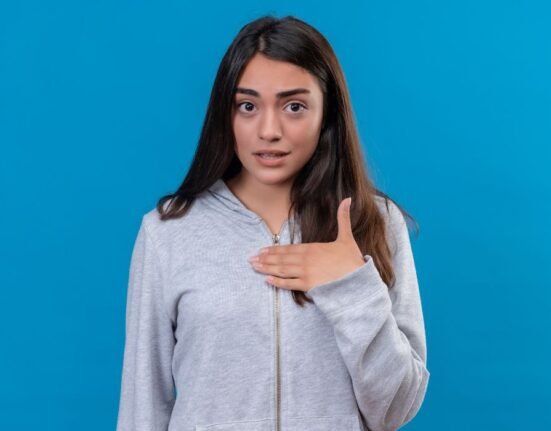The ideas and actions used to deal with stressful events, both internal and external, are referred to as coping mechanisms. Defense mechanisms refers to adaptive subconscious or unconscious reactions that both work to decrease or endure stress; this word is specifically used to describe the mobilization of conscious and voluntary acts. When people encounter a stressor, they respond to it in different ways that are referred to as coping styles. Coping styles are a collection of generally constant characteristics that influence an individual’s behavior when faced with stress. These hold true across time and in many contexts.
Coping may be broadly classified into two categories: proactive coping, which aims to prevent future stresses, and reactive coping, which responds to the stressor after it occurs. Reactive people do more in a more varied setting, but proactive people thrive in stable surroundings because they are less responsive to stimuli, more rigid, and routineized.
Also Read: How Is Creativity And Coping Interconnected?
Coping scales quantify the kind of coping strategy a person uses. The most often used measures are Religious-COPE, (Coping Orientation to Problems Experienced), Ways of Coping Questionnaire, Coping Strategies Questionnaire, Coping Inventory for Stressful Situations, Religious-COPE, and Coping Response Inventory.
Four main categories are commonly used to describe coping:
- Problem-focused, focusing on the issue that’s generating the distress: Active coping, planning, restrained coping, or suppression of conflicting activities are a few examples of this coping style.
- Emotion-focused, trying to lessen the bad feelings connected to the issue: Beneficial restructuring, acknowledgment, devotion to religion, and comedy are a few examples of this approach.
- Meanings-focused, in which a person makes use of mental techniques to ascertain and regulate the situation’s meaning
- Social coping (support-seeking) is the process by which a person asks their community for practical or emotional help in order to manage their stress.
Numerous coping strategies come in handy in specific circumstances. While some research indicates that a problem-focused strategy may be the most effective, other studies consistently show that various coping strategies are linked to less favorable results. Maladaptive coping is the term used to describe coping strategies linked to worse mental health outcomes, including increased levels of signs of psychopathology. Disinterest, avoidance, and emotional repression are a few of them.
Also Read: The Psychology Behind Copy Cat Crimes
The Impact on Treatment Adherence and Disease Progression:
The prefrontal cortex’s medial region as well as the nucleus accumbens receive dopamine and serotonergic input, which is linked to the physiology behind various coping mechanisms. Vasopressin and oxytocin, two neuropeptides, also have a significant impact on coping mechanisms. However, there was little chance that Neuroendocrinology pertaining to corticosteroids, plasma catecholamines, and the functioning within the hypothalamic-pituitary-adrenocortical axis would have a direct causal relationship.
Individuals who employ unhealthy coping strategies are more prone to participate in actions that jeopardize their health than those who employ healthy strategies. Additionally, they are more prone to consume alcohol or cigarettes and to be non-adherent.
Through lifestyle modifications, coping affects patients’ adherence to treatment and the progression of their illness. Coping strategies are crucial in assessing the severity of diseases where non-medical therapy contributes to the disorder’s progression. In psychotherapy or educational programs for patients, coping patterns may be beneficial, and addressing them may help avoid consequences.
Also Read: How to Handle Children’s Dictatorial Demands
Coping strategies are important for patients, but they also have implications for doctors, nurses, and other healthcare professionals. Healthcare professionals are more likely to select a problem-oriented coping strategy, whereas the propensity to select avoidance diminishes with increasing age and length of employment. The employment of problem-oriented coping methods, social integration, and religious practice reduces the prevalence of burnout syndrome.
Clinical Importance – Coping mechanism:
Knowing how to deal with coping strategies is essential to selecting the right patient approach and developing a productive doctor-patient relationship. Patients who use maladaptive coping techniques are more likely to believe that their doctors are unsupportive and disengaged, which makes it necessary to keep an eye on the patient’s degree of distress and coping strategies. The fact that about one in four cancer patients adopt a maladaptive coping method makes this perspective clinically relevant.
- There is evidence linking a variety of illnesses to maladaptive coping techniques. Researchers discovered a correlation between avoidance-based coping methods and physical symptoms, as well as psychiatric problems like PTSD, anxiety, and severe depression. This is also true for other conditions including heart disease and hypertension, when individuals with more severe symptoms resorted to maladaptive coping mechanisms.
- Teaching proper coping techniques can significantly affect the way patients and their caregivers view their disease, the intensity of their symptoms, and the psychological suffering that accompanies it. Lung cancer patients linked assertive communication to lower psychological distress and pain interference. Additionally, family caregivers reported experiencing lower psychological distress when using guided imagery, showcasing the effects of coping skills. In other circumstances, other coping strategies like mindfulness might not be as helpful.
Patient Responsibility in Health Management:
- Doctors, psychiatric specialists, physical therapy professionals, nurses, and other health educators share the task of teaching patients to take greater responsibility for their health. Patients who get inter-professional assistance may find it easier to manage their disease’ symptoms. Patients with osteoarthritis in their knees did not show improvement in pain intensity with coping skills training programs. The combination of physical exercises and coping skills training with therapy resulted in a more substantial improvement than each alone. They did not offer pain or functional benefit beyond that with preoperative and postoperative care.
- Supporting the patient’s coping strategies requires an understanding of their coping methods. Among nervous surgery patients, talking to the medical personnel to get knowledge and social support became the most common coping mechanism.
Using different coping measures (e.g., COPE, Ways of Coping Questionnaire, Coping Strategies Questionnaire) to track patients’ coping mechanisms might aid in assessing the psychological state of the patient and tracking their progress.
Why Do We Adopt Coping Strategies?
Coping strategies lessen the negative consequences of stress. Your sympathetic nervous system’s “flight or fight” reaction sets off the stress response. Your body adjusts as a result, making it easier for you to flee from or confront any threats.
Avoidant vs. Active Coping
One might categorize coping techniques as avoidant or active. When you actively cope, you identify the cause of your anxiety and decide to take action to alter the circumstances or your response to them. Avoidant coping is the term used to describe the act of ignoring the subject or situation causing you stress.
Also Read: Caring for Someone with Mental Distress
Adaptive Techniques – Coping strategy
People frequently utilize problem-focused coping as well as emotion-focused coping techniques to manage their stress .
Problem-Oriented Adaptation:
The goal of problem-focused coping is to alter or get rid of the stressors. If you can exert some control over the circumstance that is stressing you out, this kind of coping will function.
Emotion-Driven Adaptation:
Sadly, tension is unavoidable, especially when it comes to circumstances where you have little authority over the cause of the stress. Emotionally centered coping tactics can help you change your response to stress.
How to Boost Your Capabilities for Coping
If you discover that you might do better at coping, give these suggestions a try:
- Determine your stressors: When you can pinpoint the source of your stress, positive coping techniques work best.
- Note your present means of coping: Take note of how you react to your stressors and assess if you now use coping techniques that are constructive or destructive.
- Try something different: To find the coping mechanism that works best for you, you may need to experiment with a few different ones.
- Develop the habit: Include your coping mechanisms in your everyday routine. For instance, even if you’re not anxious, set aside five minutes throughout your workday to practice deep breathing or meditation.
- Obtain assistance: Speak with a therapist if you’re having trouble developing healthy coping mechanisms or eliminating unhealthy ones.
The goal of coping techniques is to steer clear of stressful situations or uncomfortable feelings. These actions might be either maladaptive or adaptive (good). While emotion-focused coping assists you in altering your response to stress, problem-focused coping seeks to remove or modify the source of your stress.
References+
https://www.verywellhealth.com/coping-mechanisms-5272135#citation-1
https://www.ncbi.nlm.nih.gov/books/NBK559031/
https://pubmed.ncbi.nlm.nih.gov/14744233/
https://pubmed.ncbi.nlm.nih.gov/20557667/
https://pubmed.ncbi.nlm.nih.gov/17489958/













Leave feedback about this